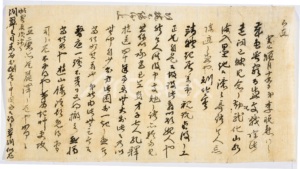Lee Man-do was born in 1842 in Yean, Gyeongsangbuk-do, with the courtesy name *Gwanpil* (觀必), the pen name *Hyangsang* (響山), and the family origin of Jinseong (眞城). In 1866, he passed the highest civil service exam with top honors and held various government positions, including Secretary of the Ministry of War, Censor of the Office of Inspector General, and Scholar of the Hongmungwan. He was renowned for his scholarly achievements and his upright governance, earning a reputation for integrity. His petitions to King Gojong significantly influenced state affairs.
Following the assassination of Queen Min in 1895 and the subsequent order for men to cut their hair, he raised an army of righteous fighters in his hometown of Yean to resist Japanese imperialism. In 1905, after the signing of the Eulsa Treaty, he submitted a forceful petition condemning the five officials who had betrayed the country by signing the treaty.
In 1910, when Korea was annexed by Japan, Lee decided to take his own life in protest. He fasted for 24 days and died as a martyr for his country. For his patriotic sacrifices, he was posthumously awarded the Order of Merit for National Foundation in 1962. Lee Man-do is remembered as a dedicated patriot who left a lasting impact on Korean history through his devotion and sacrifice for his homeland.

